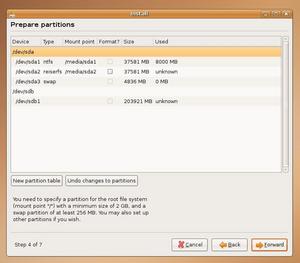If you’re running Ubuntu (or any of a number of popular Linux distributions), chances are that in most cases you have an email/calendar client called Evolution installed. Evolution is a fantastic product. It allows you to access not only POP3 and IMAP email servers, but to interface with Microsoft Exchange servers as well. You can keep track of your notes, appointments and tasks with ease, and receive reminders when events or due dates are quickly arriving.
The problem with Evolution, at least as I see it, is that in addition to being a huge product (in terms of features), it’s also a bit of a hog as well as far as hard drive space and system resource requirements.
For many Linux users, using fairly modern computers with fast processors and lots of RAM, that’s not an issue. But what about people who are trying to breathe new life into old hardware? One of the main “selling” points for Linux is that it can allow an older computer, possibly not able to run Microsoft Vista (or even XP), or Mac OSX, to keep being a functioning, productive piece of equiment.
One of the ways people do this is to install a lightweight Window Manager and Desktop Environment, such as xfce or Fluxbox. Both of those offer a fairly full-featured environment with lesser requirements. Consequently, people using those type of setups may not want to use a product such as Evolution.
Thankfully, a nice solution – called the Orage Calendar – exists for people looking for a calendar and to-do list.
Orage, originally written to be the xfce environment’s calendar application, can be installed on any Linux installation. My current Linux, Ubuntu (running the Gnome desktop environment), has none of the necessary requirements for Orage, and yet installing it only necessitates me grabbing seven additional libraries, totalling only 12.1 MB, which is not bad at all. Conversely, installing Evolution (which is written for the Gnome desktop environment), would require me to install more than 100 MB worth of extra libraries.
Now, Evolution has more features, that’s absolutely true, but for someone needing a nice calendar application, Orage is likely worth a look.
What is Orage exactly? First, it’s a toolbar calendar. Add it to your panel, and Orage will give you both a panel clock and – when the clock is clicked – a drop-down calendar. This calendar then allows you to create and view all your events, to-do lists and journals. To create one of those items, simply double-click on the day (in the calendar), which you’d like to have the event.
A new dialog will appear, giving you the option to create whatever it is you want. Give a title to your event, add a location, the time the event starts and ends, and any notes you’d like to attach to it. You can set an alarm for this event, and determine when exactly you’d like to receive notice that the event is upcoming. As well, you can set this event to be recurring, meaning that if the event in question happens once a week at the same time (like a piano lesson or sports practice), you wno’t have to type in the event each week.
Orage also gives ou a nice view of all your events. You can receive the day view (which is actually a bit misnamed, as it can be set to show you as many days as you want – from 1 up to 40), or else just what’s happening today.
Using Orage, as I did for a while when running Xubuntu (an Ubuntu variant based on the xfce desktop environment), showed me that while Orage doesn’t have all the cool graphics or interoperability with Windows networks, it does have enough features to make it worth running. So if you’ve got a computer just sitting around, try installing Linux on it. The xfce environment is a great place to look, and if you do use it, give Orage a try. It’s a nice calendar, a great to-do list manager, and you get it all with a very small footprint.


